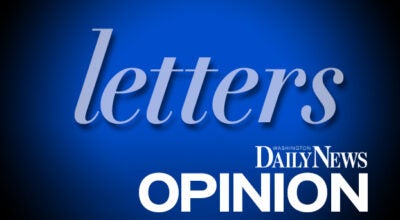Perpetuating the myth of calls at critical times
Published 2:10 pm Friday, October 13, 2017
To the Editor:
I began reading the editorial on Sept. 28 with anticipation of seeing in print how the NCHSAA is condemning profanity from coaches and players and the NFHS condemning the use of unnecessary roughness by adding rules concerning targeting, blindside blocking and unnecessary contact with defenseless players. But instead, I read about holding, thus perpetuating the myth that we officials are simply looking to make a call at a critical time on the field.
Did you really mean to say you think the referee’s flag “should have a bearing on the game’s outcome?”
In reality, it is the hope of every official working a sporting contest that their enforcement of a rule will not come at a time when enforcement could affect the final outcome of the contest. Every experienced official knows which fouls must be enforced because of their vicinity to the action or their impact on the safety of players. And these seasoned officials have the thick skin to be able to withstand the harsh criticism that often comes with making the tough calls during a game without regard to which team is ahead or behind in the score, the position on the field of play or the time remaining in the ball game. The inexperienced official may not make the call because of the criticism that usually follows.
You write of the inconsistency of the fouls being penalized during a ball game. That inconsistency to which you are referring is probably related to the fact that we will not call holding every time we see it occur. When a coach or fan sees what they think is holding, they may see hands in a certain location which may or may not reach the definition of holding. They also may not have been in the position to see that the defensive (or offensive) player being “held” was not at a disadvantage or that the “holding” had no bearing at the point of attack. So yes, we officials see holding and sometimes do not penalize it. We will, however, tell the offending player what we saw and tell him/her that had it occurred at a critical time during the play it would have been flagged. We officials talk to players all game long when we can warn without a penalty.
But the crux of your entire editorial is the penalty thrown during the game at a critical time. We officials have warned players of the fouls that did not affect the play or were not safety related and the ones which involved minor non-contact unsportsmanlike conduct all game long. It’s not surprising to us that the same players are often the repeat offenders whose actions affect the play at a critical time. We officials are looking for those illegal actions that cause the fouling player to gain an unfair advantage by his illegal act. Did one player gain an advantage over another player through his illegal use of hands or holding or some other action that would be considered as unwarranted and with intention to inflict hurt? They are just two of the many questions we answer with our penalty flags.
Your other point about respect deserves a mention also. Coaches deserve explanations. But when the coach has been given the explanation and reason for the penalty, the player’s number and the enforcement, any more discussion with the referee will have to occur during a time out. During that time out, if no change occurs, the time out belongs to the team. If a change is made because of misapplication of the enforcement, the time out becomes an official time out and not charged to the team. Coaches usually don’t want to be charged for a time out simply to let their frustrations out on the referee and essentially argue a call. This not only prevents unnecessary delays, it is also by NFHS rule. But we officials are seen as the bad guys during this situation. We want the game to continue. Players want the game to continue. Fans want the game to continue.
Your editorial only reinforces what the public already thinks it knows, that officials are there to look for every possible penalty and to inflict those penalties at the most critical times during the ball game. Nothing could be farther from the truth. And because of fan behaviors after some contests, schools are required by the NCHSAA to provide an escort with us as we move off the field either in the form of a game administrator or a uniformed officer. This is to prevent those who have no intimate knowledge of the rules as we officials have from acting out their frustrations for how the contest may or may not have ended for their team.
Only after you have been through the 10-12 pre-season clinics we attend each summer should you have even an inkling of what it takes to make the call, the right call, at a critical time during the game. I’ll extend the invitation next May so you can begin with us in June.
TJ Warren
Referee, Coastal Plains Officials Association
Washington


